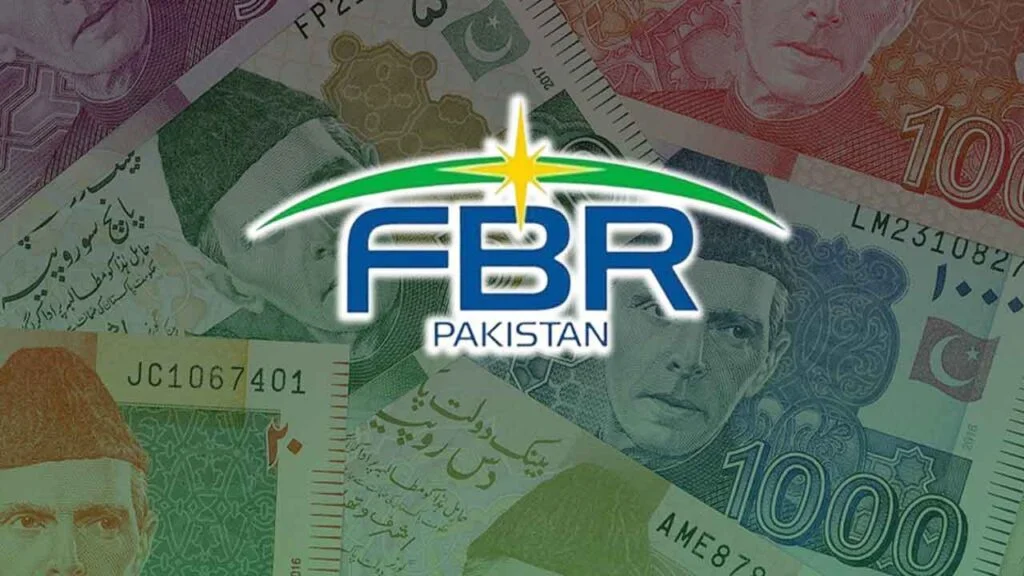- Web
- Feb 05, 2026
FBR aims to meet tax-to-GDP target despite collection shortfall
-

- Web Desk Karachi
- Feb 14, 2025

LAHORE: Despite concerns that the Federal Board of Revenue’s (FBR) tax collection might not reach the targeted Rs12.97 trillion for the current fiscal year, the tax authority remains optimistic about achieving the goal of increasing the tax-to-GDP ratio to 10.6 percent, a key objective outlined in the ongoing International Monetary Fund (IMF) programme.
During the first and second quarters of the fiscal year, the tax-to-GDP ratio was recorded at approximately 9.6 percent and 10.8 percent, respectively. FBR officials anticipate that while the ratio will likely remain slightly below 10.6 percent in the third quarter, it is projected to exceed 11 percent in the fourth quarter.
As part of the agreement with the IMF, the government has committed to increasing the tax-to-GDP ratio by a minimum of 3 percentage points, aiming for a range of 13 to 13.3 percent over the 37-month duration of the funding programme. This ratio, which serves as an indicator of the government’s effectiveness in mobilising economic resources through taxation, is projected to be 8.77 percent in FY24, a decrease from 9.22 percent in FY22.
The FBR foresees a collection shortfall of nearly half a trillion rupees from the ambitious revenue target of Rs12.97 trillion. Achieving this target necessitates a substantial 40 percent increase from the previous fiscal year’s actual collection of Rs9.6 trillion.
The primary tax collection agency is already facing a deficit of Rs468 billion in the revenue collection target for the seven-month period from July to January. This is despite achieving a growth of almost 26 percent, with collections amounting to Rs6.49 trillion compared to Rs5.143 trillion during the corresponding period of the previous year.
Given the current circumstances, some tax analysts express concerns that the government could potentially miss the target by close to a trillion rupees. This shortfall is largely attributed to reduced tax collection from imports, sluggish growth in large-scale manufacturing, and an unexpected sharp decline in inflation to single digits in recent months.
FBR collects record Rs872b revenue in January
The government had anticipated an additional Rs3.66 trillion in revenue from autonomous growth, enforcement actions, and newly implemented policy measures.
“The targeted tax growth incorporated an autonomous revenue growth of Rs1.86 trillion, based on a 3 percent GDP expansion, 3.5 percent real LSM growth, an inflation rate of 12.9 percent, and an increase of approximately 17 percent in imports,” an FBR official noted.
The remaining tax revenue growth was expected to stem from additional policy measures, including new taxes and upward revisions in tax rates and slabs (Rs1.34 trillion), as well as improved enforcement (Rs451 billion).
The FBR also aims to address at least half of the estimated tax gap of Rs7.1 trillion (comprising Rs3.4 trillion in sales tax, Rs2 trillion in income tax, and Rs1.2 trillion related to autonomous growth), an increase from the previous year’s Rs5.9 trillion, through enhanced enforcement and the use of technology.
The FBR has already developed a Tax Transformation Plan, aimed at expanding the tax base, eliminating the category of ‘non-filers,’ and improving compliance and enforcement through new punitive measures designed to boost the tax-to-GDP ratio.
FBR officials maintain that the ratio could be increased to 18 percent within a few years through the reforms outlined in the plan. According to the FBR, the inflation-adjusted tax collection has only increased by 0.3 percent between 2018 and 2024, despite a significant increase in the minimum tax rates.
The Shehbaz Sharif government recently presented the Tax Laws Amendment Bill in parliament to implement the FBR’s plan. The bill aims to enforce broad spending restrictions on both taxpayers and evaders to improve compliance. It also seeks to penalize tax evasion and under-reporting, while outlining several enforcement measures designed to strengthen compliance.
The FBR transformation plan, which introduces the new classifications of ‘eligible’ and ‘ineligible’ persons based on their status as tax filers or non-filers, proposes strict restrictions on activities such as purchasing real estate and cars, maintaining bank accounts, and investing in stocks. It also prohibits taxpayers from spending on property and car purchases exceeding 30 percent above their declared assets, including cash, as stated in their wealth statements.




